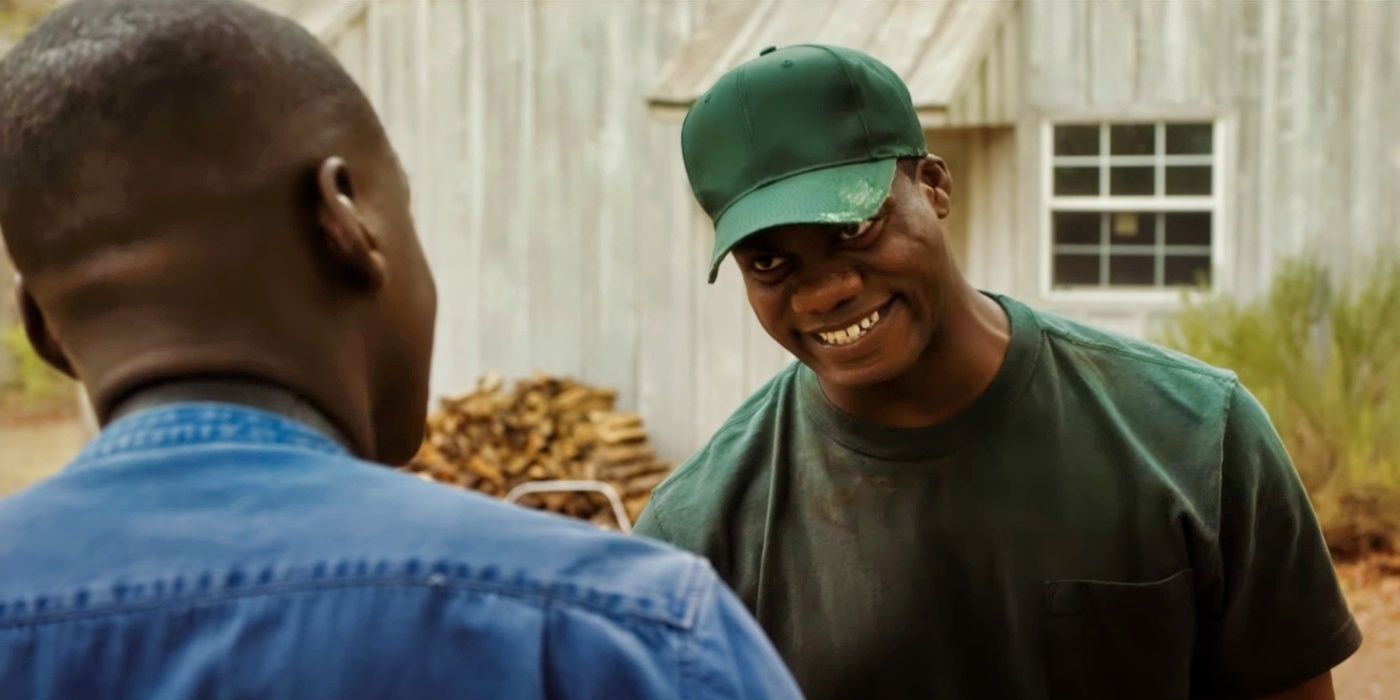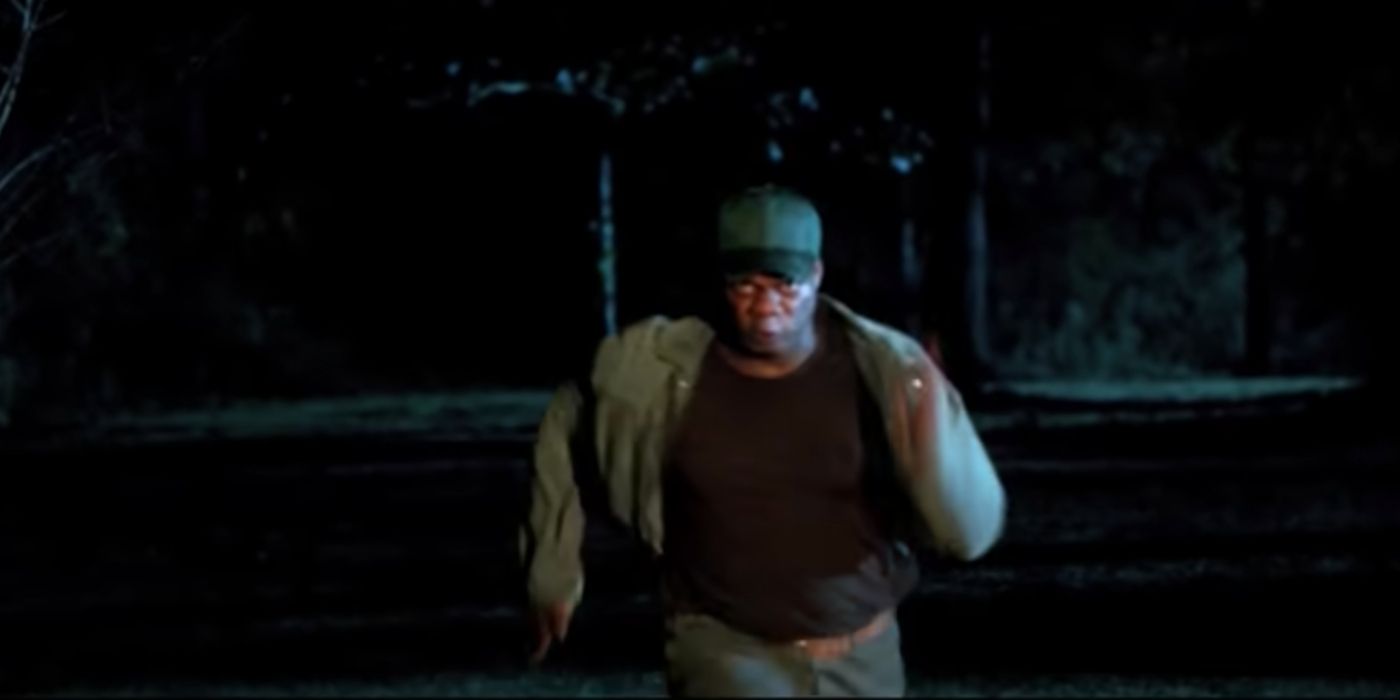Jordan Peele’s Get Out is full of subtle symbolism, but few viewers understood the real meaning behind Walter running late at night on first viewing. Released in 2017, Get Out was a critically acclaimed horror-comedy that established Peele as a modern master of the genre. A satirical commentary on race relations, Get Out depicted the struggle of Chris, an affable young black photographer played by potential future Bond Daniel Kaluuya.
Chris is tense about the prospect of meeting his well-to-do white girlfriend Rose’s family at their remote, palatial estate. It turns out that his fears were well-founded, as what soon unfurls is a Twilight Zone-style tale. Chris is perturbed by Rose’s unsettling family and their universally white guests, but their black staff proves equally unwelcoming. Of course, this all adds up when Chris discovers the clan has been kidnapping black people and stealing their bodies for years.
The twist is both a wild shock and simultaneously foreshadowed throughout the story, as proven by the odd detail of Walter running through the night. One of the few fellow black characters Chris encounters, Walter is the unsettling groundskeeper who startles Chris when he sprints past him in the dead of night during a clandestine cigarette break. However, when Get Out’s ending later reveals Walter holds the consciousness of Rose’s grandfather implanted in the mind of a real groundskeeper, the scene takes on disturbing new significance. Rose’s father earlier bemoaned earlier in the story about how heartbroken his own father was to lose to Jesse Owens during the Olympic trials and this creepy scene is intended to show that, even in death, the character could not get over growing beaten by a black athlete.
It has confirmed the bizarre night-time running routine is linked to Walter losing to Jesse Owens, but as always with the director’s work, there are layers of symbolism at play in Jordan Peele’s horror. Owens was a particularly notable athlete, being the track and field competitor who famously dominated the 1936 Summer Olympics. Held in Berlin, the games were intended to be a testament to Nazi Germany’s ideas of Aryan supremacy, something Owens handily destroyed by winning a quartet of gold medals and becoming the most successful athlete in attendance. The idea that Walter lost to such a famously successful athlete who was instrumental in deconstructing the idea of white supremacy makes the character’s bitterness emblematic of the worldview he and his family share - that their whiteness will eventually win out and prove them to be the superior race.
It is a chilling touch for Walter to still be obsessed with his loss, but the idea neatly reinforces the recurring theme of Get Out. From Rose’s brother awkwardly challenging Chris to a physical fight to the inappropriate comments of both Rose’s parents and their guests, the family views blackness as something to be fetishized, admired, and ultimately subjugated, rather than seeing skin color as a fact of life. Thus, Walter’s insistence - even after switching bodies and generations after his defeat - that he could still someday outrun one of history’s greatest athletes is a testament to the obsessive, all-consuming racism of Get Out’s villains.


